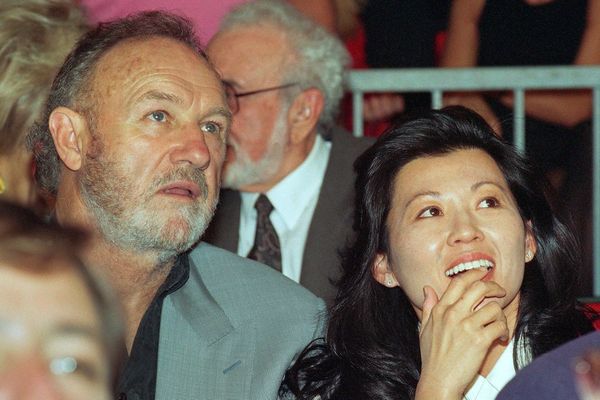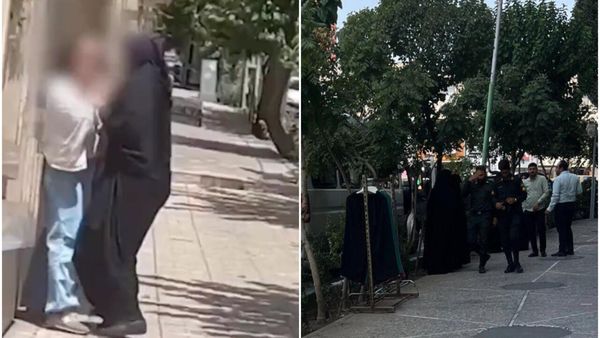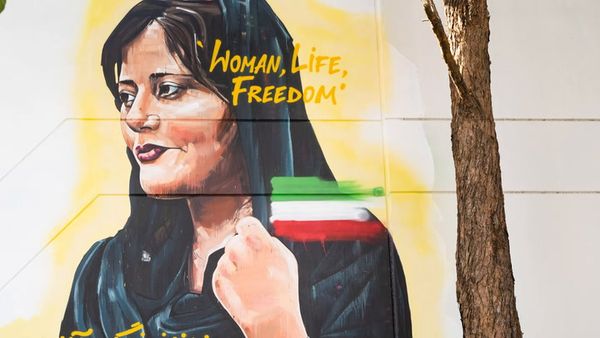
One of the most distinguished former political science professors at the University of Tehran, who was sentenced to a year in jail for tweeting about the alleged poisoning of schoolchildren, has said his sentence was inexplicable and he will appeal against it.
Sadegh Zibakalam said nothing in his tweet directly accused the government of being behind the mysterious spate of alleged poisonings of schoolchildren that left hundreds in hospital and no one charged.
There have been suggestions that some of the cases may be evidence of mass sociogenic illness – symptoms without a biomedical cause – stemming from the repression of schoolgirls who have played a leading role in the protest movement that convulsed Iran after the death of Mahsa Amini in September 2022.
The appeal against his sentence will be heard next month.
Zibakalam, 75, who has a substantial social media following and international reputation, tweeted in March: “In 1979, we firmly believed that the system that replaced the imperial system was superior not only to the humanism of the west but also to the socialism of the east. It was envisioned as a new model for humanity.
“If someone had told us … that 44 years later, girls would fall victim to poisoning, what would our response have been?”
سال۵۷ با همه وجود باور داشتیم نظامی را که داریم جایگزین نظام شاهنشاهی میکنیم الگویی بی نظیر است برتر از اومانیسم غرب و سوسیالیسم شرق.الگوی جدیدی برای بشريت. اگر کسی آنروز بما میگفت که ۴۴سال بعد در این الگوی شما عده ای دختران را مسموم میکنند که بمدرسه نروند، ما باو چه میگفتیم؟
— sadeghZibakalam (@sadeghZibakalam) March 1, 2023
The prosecutors charged him with “publishing lies with the intention of disturbing the public mind”. Several journalists were charged with similar offences.
Zibakalam said: “I don’t want to go to prison. It is not something that I desire. There are many Iranians who want to become a champion, who want to become a hero. I don’t want to become a hero. I want to write.”
Explaining his tweet, he said: “In 1979 we all strongly believed that the regime that was going to replace the shah’s regime was much better than either western democracy and eastern socialism. It was something unique and far more advanced. If someone told you, as we were flying over the moon then, that 44 years later such an incident as the school poisonings would happen, you would think he or she was out of their mind.
“That was the tweet, and a week later I was summoned by the public prosecutor to say that I had insulted the political establishment.”
He said the public prosecutors had nearly jailed him before after he gave a speech at the University of Isfahan describing Iran’s nuclear programme as “a disaster for the country since the nuclear programme had been turned into a political weapon to turn against America and the west. An energy programme had been manipulated into a political weapon. We were spending billions of dollars for our nuclear programme and it has no economic benefit for the country.”
Although the appeal court ratified an 18-month sentence for his speech, the sentence was not enforced. He was, however, banned from teaching at Tehran University.
Zibakalam said that after observing the protests after the death of Mahsa Amini, “one of the most striking social and political changes that has occurred in Iran has been the fate of religion. Religion has been a very powerful institution in Iran during the past 100 years. It was very powerful during the constitutional revolution. It was very powerful during the Mosaddegh uprisings, it was very powerful during the Islamic Revolution – so powerful that it actually captured that leadership of the Islamic Revolution in 1979. Yet what we can more or less say that we are witnessing, we are observing, the end of religion as a powerful political and social establishment in Iran.”
He continued: “We didn’t see any fingerprints, any traces, of Islamic institution of religion in the Mahsa Amini uprising. Now, during the past 100 years, religious institutions, the clergy and the mosque have always been at the forefront of social and political struggle. It was very surprising that during the Mahsa uprising, we didn’t see any clergy. We didn’t see any religious slogans, or behaviour.
“For better or worse in a way in Iran, in the beginning of the 21st century we are observing what we observed in Europe during the Renaissance, or the secularisation of Enlightenment. You could sense that, for some of the younger generation in their 20s, not all of them are anti-religion; the hijab and the political hatred against the Islamic regime has turned into a hatred of religion and Islam.”
He accepted that no social census had been completed, but said: “You can see they believe that religion must occupy a private section of our life. If you want to pray, go ahead and pray. But our economy mustn’t be run by Islamic fundamentals.
“Strangely enough, despite four decades of propaganda day and night, it appears that this young Iranian generation, rather than hating the west, have become very much fond of western culture, western civilisation, western cinema, western music. They don’t want to go to Russia, India, China. They want to go to the United Kingdom, they want to go to Canada, to Australia and to the United States.”
He believes this generation has turned away from classical political institutions. “They have become very much against the conservative, but interestingly enough, they have turned very against the reformists. Fifteen years ago, reformists were very popular in places of higher education. And [Mohammad] Khatami [Iran’s president from 1997 to 2005] was a hero for them, but it isn’t any longer. Many of them even hate Khatami more than religious figures because they say we trusted you and voted for you but you did not do anything for us.”
In the next parliamentary elections in March, most educated Iranians would not take part, Zibakalam said. But he added: “I am very hopeful and optimistic about the future of Iran because in my opinion no political establishment has survived for ever by being dictatorial and ruthless. The changes will not come easily, and they will not come within the next couple of years.v










